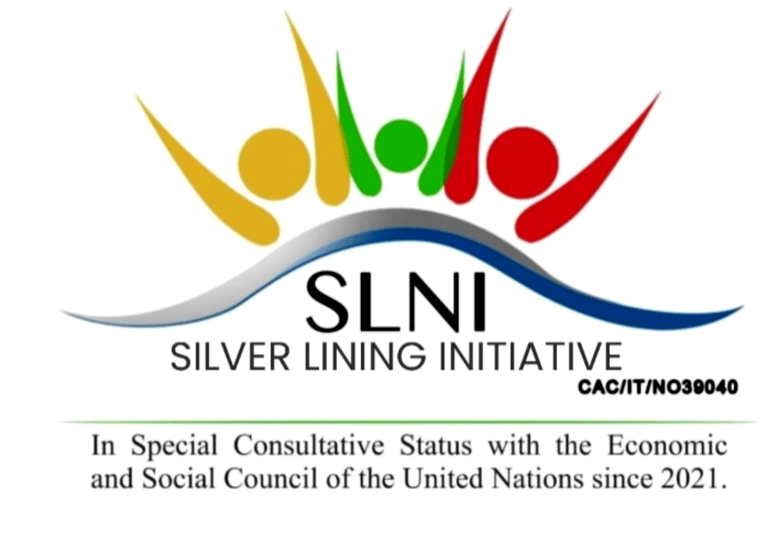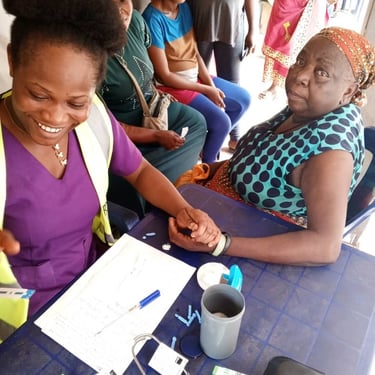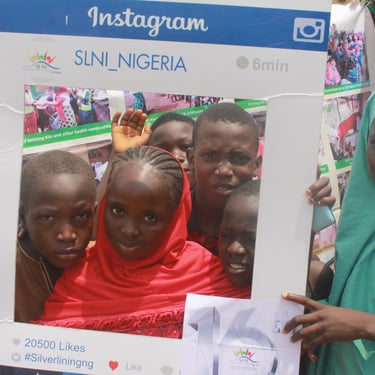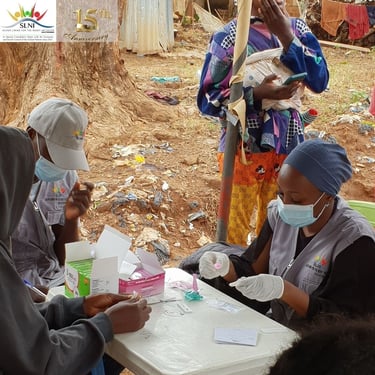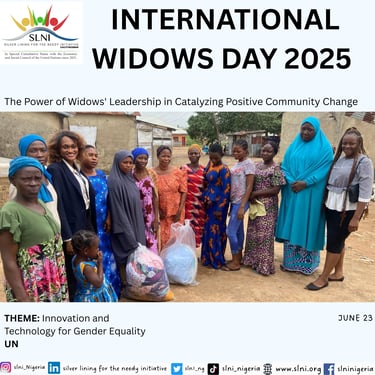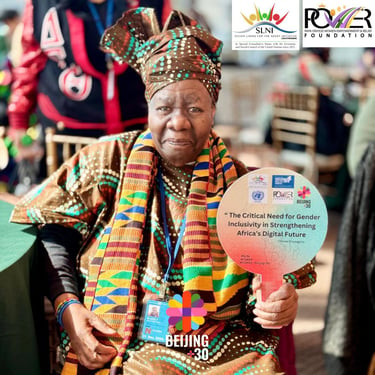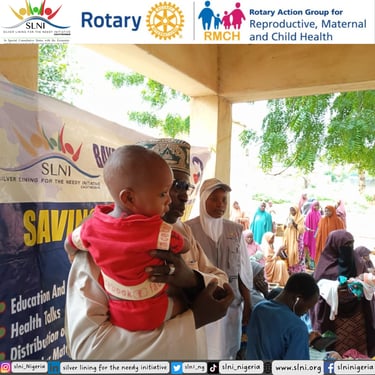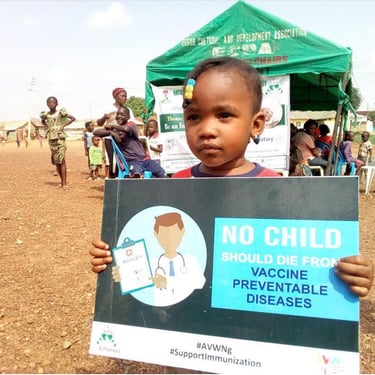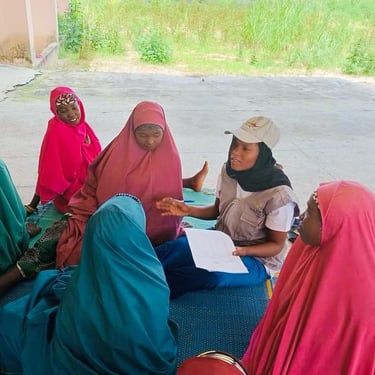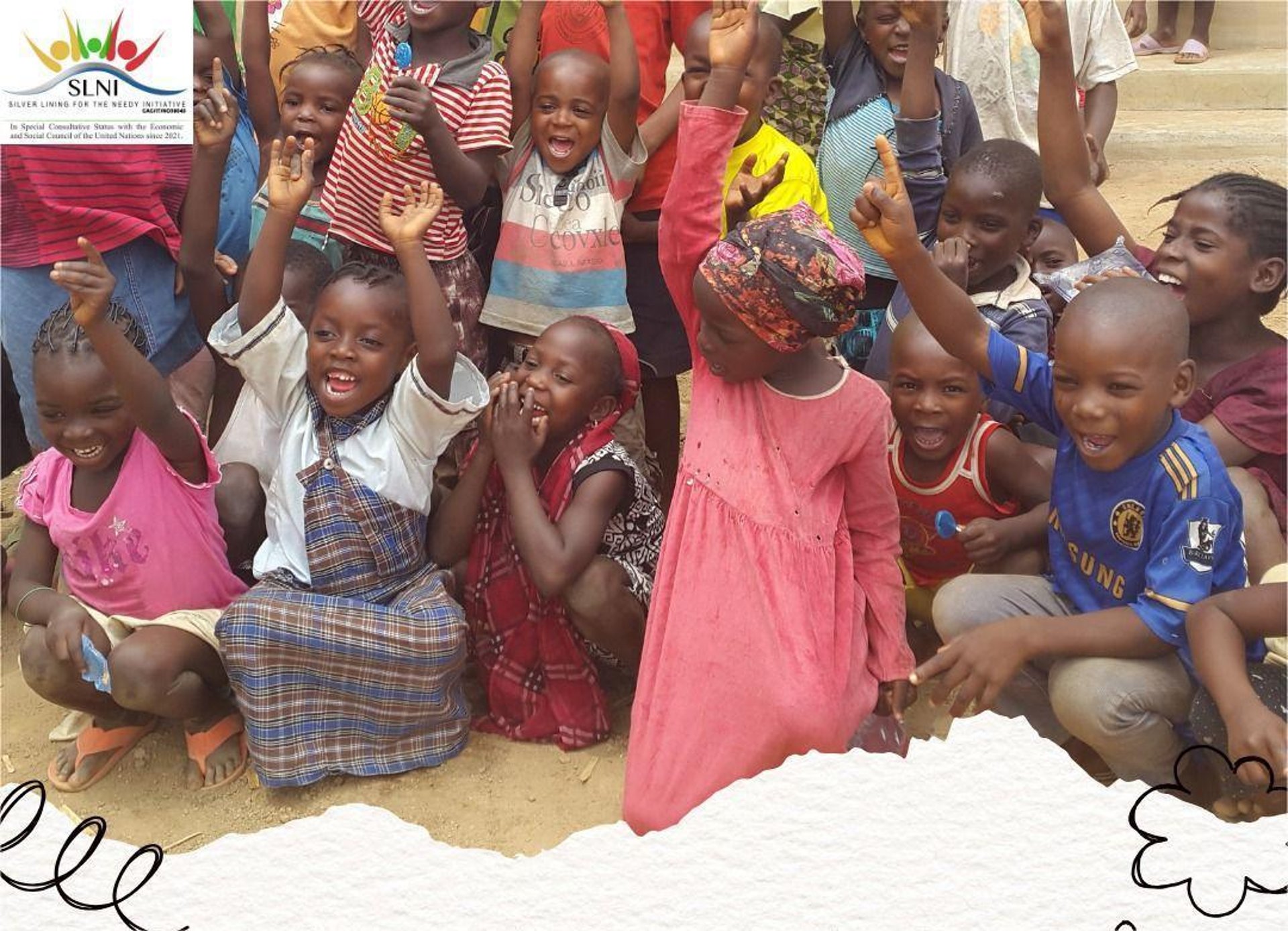
Who We Are at Silver Lining
To strengthen the capacity of rural communities towards sustainable maternal, newborn, child and adolescent healthcare projects. To empower women and youths through skill acquisition, sensitization and advocacy as a means of improving paradigm of livelihood.
OUR MISSION
OUR VISION
To see a future where hope is restored through developing communities and people live above limitations.
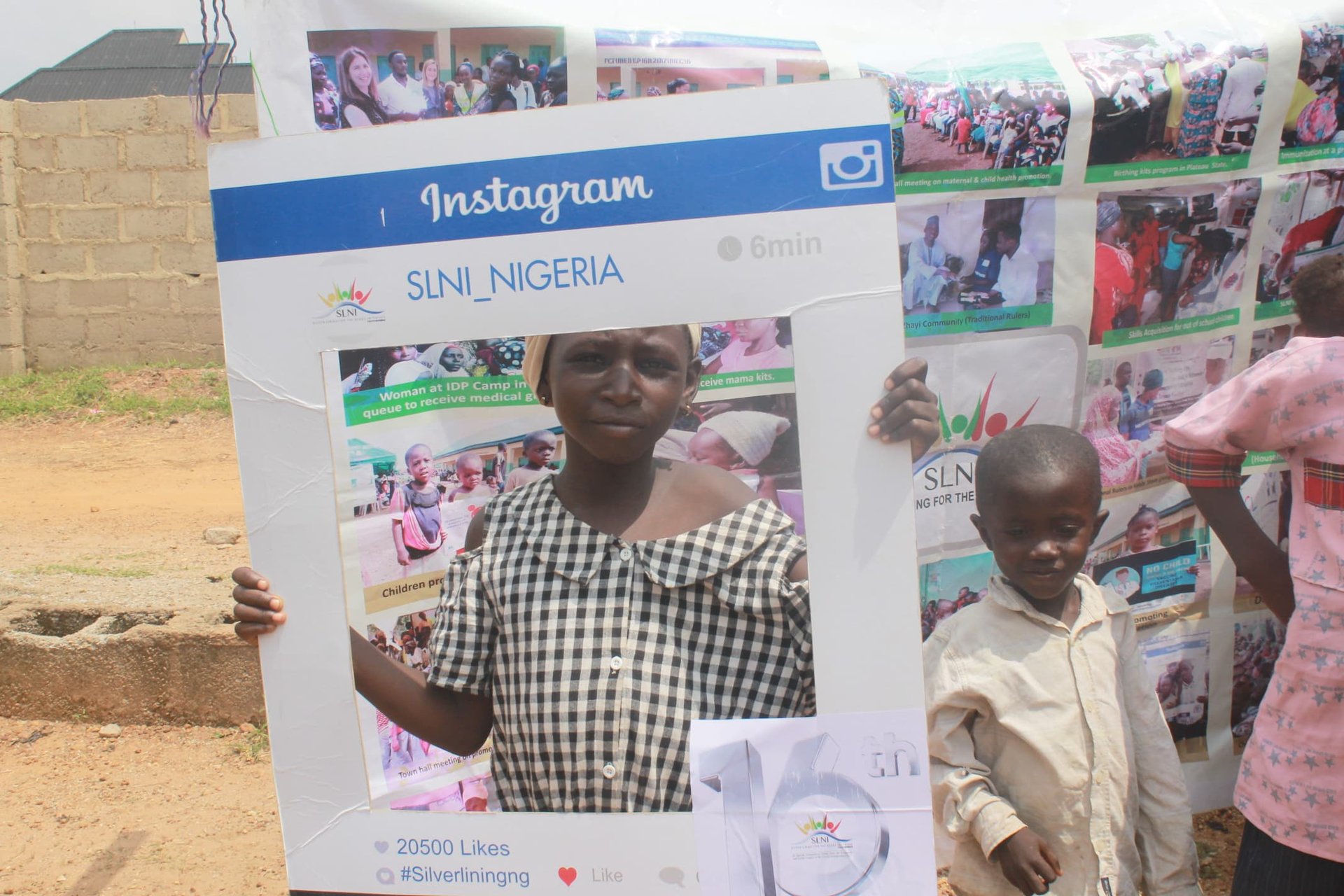
Dedicated to empowering communities and creating lasting change together.
Over 72,000 lives touched by Silver Lining Initiatives
Over 58,567 Mothers and Babies Across Nigeria
About 13,433 School Children's School fees paid and school uniform given
OUR IMPACT
Join Us and Make a Difference
Your time, skills, and passion can help transform lives. Whether you volunteer, support our programs, or stay informed, every action counts. Join our community today and be part of meaningful change.
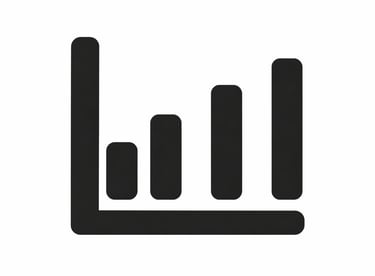





Recent Events
Empowering communities through meaningful change.
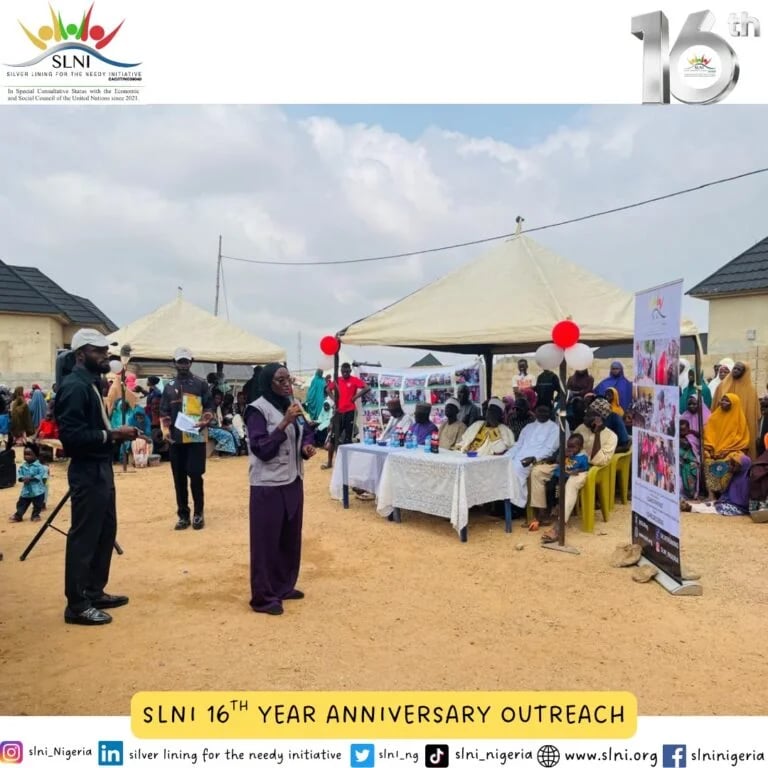

As part of it's 16th anniversary celebration, Silver Lining Initiative (SLNI) conducted a community health outreach in one of its adopted communities in Nasarawa State, reinforcing its longstanding commitment to advancing health, empowerment, and inclusion among Nigeria's most vulnerable population.
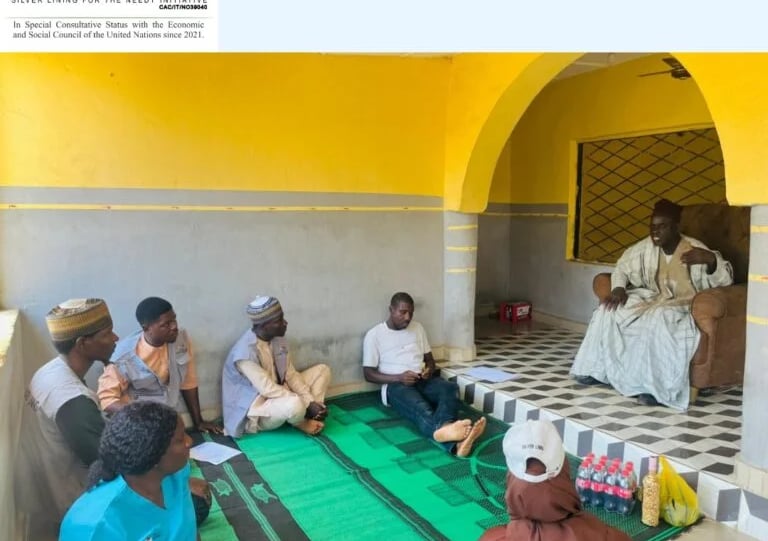

Celebrating it's 16th anniversary, Silver Lining Initiative (SLNI) met with the community head in Nasarawa State to plan a comprehensive health outreach. This crucial collaboration was key to providing local families with vital services, such as malaria screenings, blood pressure checks, birthing kits, and promoting the VITAL HPV vaccination initiative for adolescent girls.
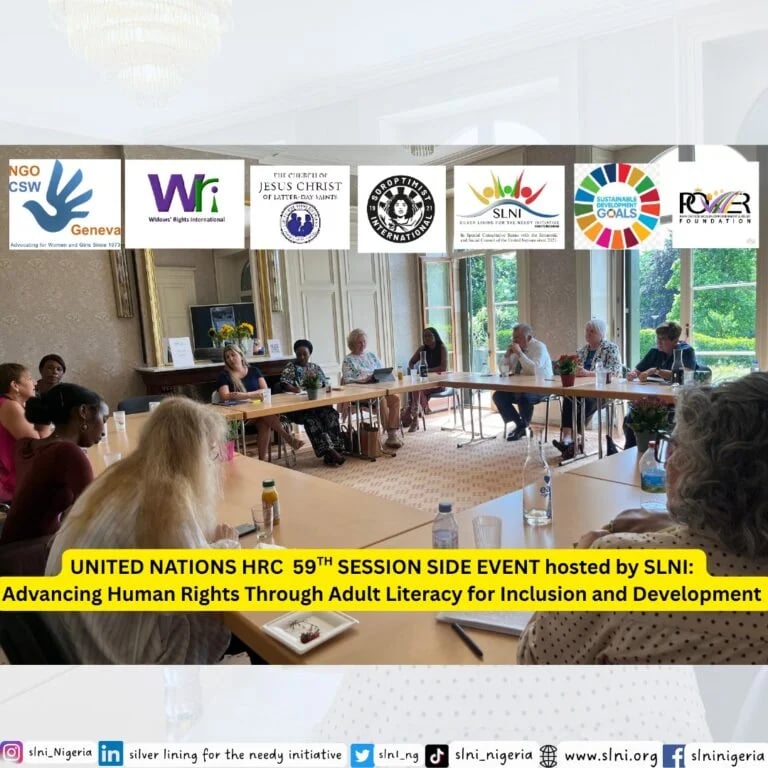

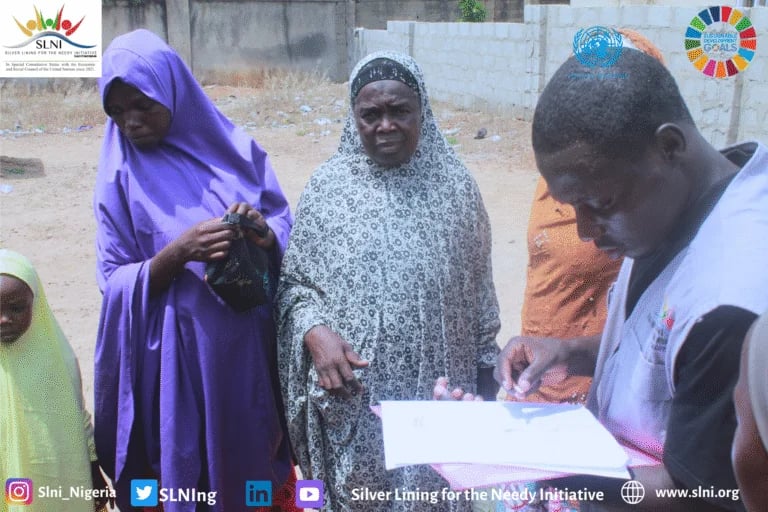

Silver Lining Initiative (SLNI) hosted a session under the CSW Geneva Widows Day during the 59th session of the United Nations Human Rights Council (HRC59). The event, titled "Advancing Human Rights Through Adult Literacy for Inclusion and Development," marked International Widows Day
As part of the ongoing health outreach initiative, the SLNI team visited the Monitoring and Evaluation (M&E) office in Yola South and Yola North LGA
RECENT NEWS
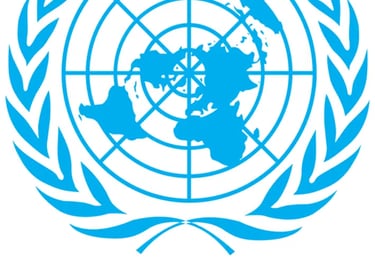

UN adopts SLNI’s oral statement on adult literacy
The United Nations has officially adopted the oral statement of Silver Lining for the Needy Initiative (SLNI), a Nigerian non-governmental organization. The adoption was announced at the UN Economic and Social Council (ECOSOC) High-Level Political Forum in New York, where SLNI presented its oral statement on empowering communities through adult literacy.
SLNI & POWER FOUNDATION AT CSW69: From Dialogue to Impact
Youths push for climate-smart education, inclusive development
On March 13th, 2025, SLNI in collaboration with POWER Foundation set the stage at CSW69 for a groundbreaking dialogue on gender equality. Global experts, advocates, and change-makers united in an electrifying, interactive session that shattered old norms and sparked evidence-based solutions for a sustainable future....
Youths on Wednesday called for increased investment in climate-smart education, youth empowerment, and inclusive development to strengthen resilience against the growing impacts of climate change..
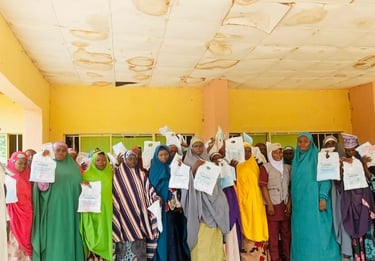

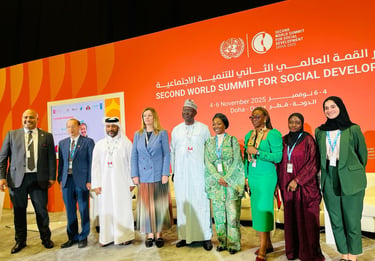

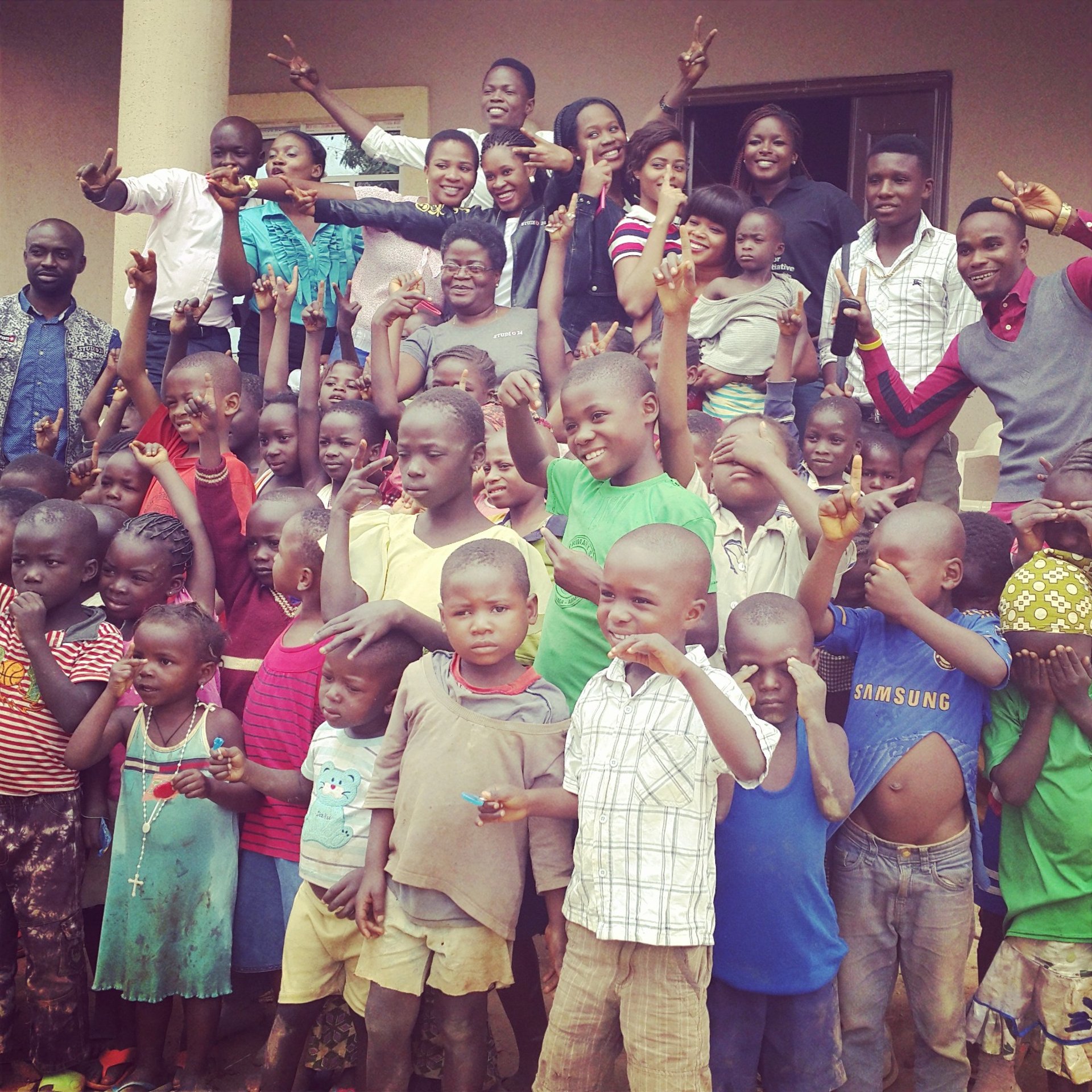
President's Forward
Nigeria remains one of the top contributors to under-5 and maternal mortality rates globally. Contributing factors such as poverty, limited access to medical treatment, shortages of healthcare workers, lack of awareness, and poor hygiene increase the risk of deadly but preventable diseases, making them the primary causes of high mortality rates among infants and mothers.
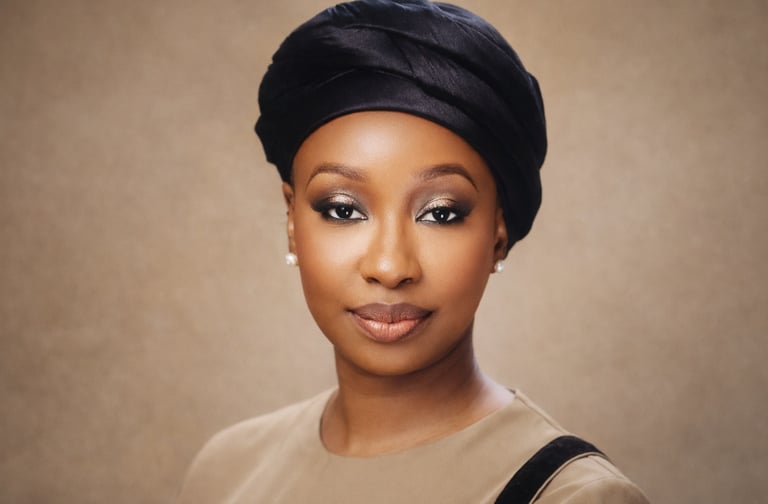

HAUWA ABBAS HADEJIA
